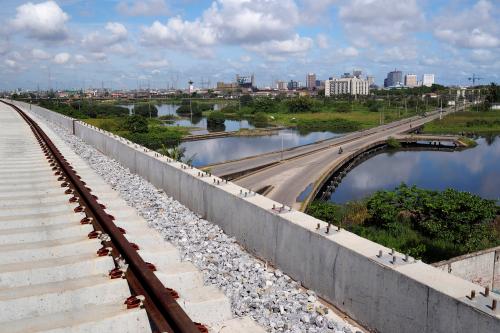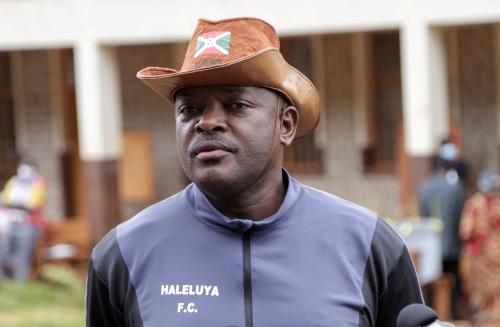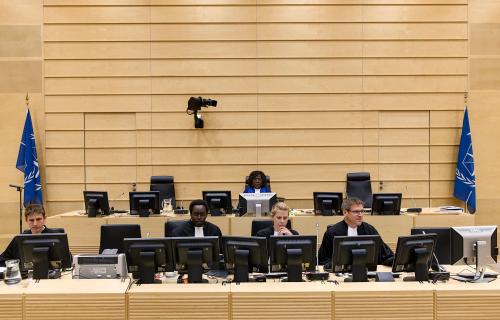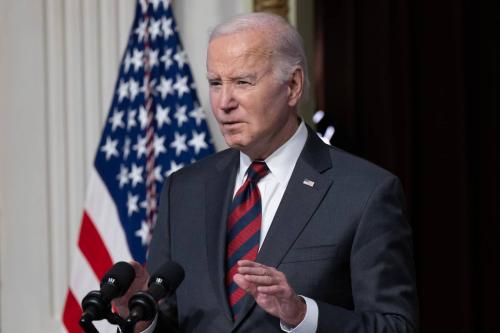Kenya raises over $2 billion with eurobond
This week, Kenya entered uncertain debt markets, raising $2.1 billion with a dual-tranche eurobond. The eurobond consists of two portions: One $900 million portion consists of seven-year bonds priced at 7 percent, and the other $1.2 billion portion, consists of 12-year bonds priced at 8 percent. Both portions were below the initial estimated market price of 7.5 percent and 8.5 percent, respectively. In part, the proceeds will be used to finance a $750 million eurobond due to mature in June.
“It’s a very favorable rate given that Kenya hasn’t finalized an agreement with the IMF,” said Vinita Kotedia, macro-strategist for sub-Saharan Africa at private equity firm EFG-Hermes. “It looks like investors were more focused on the credibility of debt issues out of Kenya, and they aren’t too worried.” Despite Kenya failing to secure a new standby credit facility with the International Monetary Fund after its previous arrangement expired last September, it seems investors had an appetite for Kenyan debt as the bond offering was oversubscribed by over four times.
However, concerns remain around Kenya’s rising public debt as a percentage of GDP, which increased to 55 percent from 42 percent when Kenyatta took office in 2017. “Kenya’s debt worries have been building for some time,” said John Ashbourne, senior emerging markets economist at Capital Economics. The World Bank and IMF have recently expressed concern for growth in many sub-Saharan African economies, including Kenya, that could make future bond offerings challenging. However, the Kenyan government is still optimistic, forecasting economic growth of 6.1 percent this year.
Zimbabwe rebases GDP and faces power cuts
This week, Zimbabwe’s finance minister announced that the country would rebase its GDP following the adoption of a new currency, the Real Time Gross Transfer (RTGS) dollar, earlier this year. The new currency, which merged the quasi-currency bond note and electronic dollars in use at the time, was adopted in February. This rebasing is the second one in two years, with last year’s exercise leading to GDP increasing by 40 percent. Finance Minister Mthuli Ncube also recently announced that the economy had grown at 6.2 percent in 2018 against the country’s initial forecast of 3.1 percent. Zimbabwe has struggled to rein in inflation as the new currency continues to depreciate against the U.S. dollar. In recent months, year-over-year inflation hit 76 percent in April according to data released by Zimbabwe’s National Statistics Agency.
In other Zimbabwe news, the country began its most significant power cuts in three years this week as output from the Kariba hydro plant declined due to low dam water levels, among other challenges. As a result, households and businesses are expected to be without power for up to eight hours a day. According to Reuters, the country is currently only producing 969 MWs of power against daily peak demand of 2100 MWs. Zimbabwe’s national power utility has not announced when the rolling blackouts will end and cautioned that mining companies may be affected as well. Mining accounts for two-thirds of the country’s exports and is an important source of foreign exchange for the country.
Political updates in Sudan, Benin, and Togo
Unrest around the political transitions in Sudan continued this week, as talks between the military and the civilian protest movement stalled on Wednesday. Although early that morning, leaders on both sides reported that the negotiators had agreed to a three-year transition to democratic rule, by Wednesday evening, those talks had broken down over the composition of the transitional ruling council. Violence has continued in the background of the discussions while protesters continue to occupy Khartoum and tensions mount between them, the military, and the militia group, Rapid Support Forces.
On Thursday, May 16, Benin swore in its new parliament following April’s controversial elections in which no opposition candidates were eligible to run due to new, complex, and burdensome electoral laws. Also, in the run-up to the election, the internet, social media, and messaging apps were blocked. Protests of the election results have turned deadly in recent days, with government forces firing upon crowds.
In other political news, last week Togo’s parliament unanimously approved a constitutional amendment changing the term limits of the presidency. According to the amendment, “The president of the republic is elected by universal suffrage … for a term of five years, renewable once.” The amendment will not be applied retroactively, meaning that current President Faure Gnassingbé will be eligible to be in power until 2030. Gnassingbé has served as president since his father’s death in 2005. The legislature also made the presidential election a two-round race. Notably, the assembly passed an amendment granting immunity for life for any transgressions committed by a president during his or her terms.







Commentary
Africa in the news: Kenya’s new eurobond, Zimbabwe’s rebased GDP, and Sudan, Benin, and Togo political updates
May 18, 2019